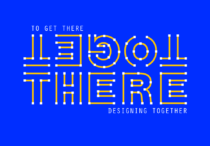Cumulus Conference in Paris was not only waiting up with a great venue but also a great opportunity to discuss the ongoing change in Design Education. You can read my full paper here:
Eckert_CumulusConference_Paris2018
Part of this discussion around Stewardship and Leadership becoming more central in design education resulted in a first attempt of listing «Ten Principles of Stewardship in Design» – they outline skills, competencies or subjects that should be included into today’s design curricula:
1. Ethical and cultural awareness: designers are ethically aware that at the core of their work stands the relationship between any design intervention and its impact on the human being, cultures and the ecosystem we live in.
2. Identifying problems & Framing Projects: Designers actively identify areas of friction and leverage points as starting points for design interventions, which may unfold in value and huge impact.
3. Agility: Designers embrace the openness and unfinishedness of their intervention and artefacts in order to make them adaptive design solutions ready for a continuous updating.
4. Data literacy and De-Computation: Designers are aware of the rise of data-driven processes and are able to relate to these processes as “actors of de-computation” in order to turn them into benefits for the human society and the world it lives in.
5. Research culture: Designers are able to embed their work into a culture of research and documentation in order to be accountable for their work and making their acting as transparent as possible towards the community.
6. Methodology: Designers master a wide range of processes and methods. They therefore are able to match a design process with the right methodology.
7. Leadership: Designers acquire leadership skills in order to lead cross- disciplinary conversations and projects. They adopt their leadership style to the stakeholder ecosystem they work in.
8. Facilitate: Designers act as facilitators and translators across disciplines, media, cultures, economies and technologies.
9. Empathy & Inclusion: As conversation leaders, designers are responsible for the active inclusion of all necessary participants of a design process.
10. Foresight and evaluation: Designersareabletoanticipate,evaluateand control the impact of their interventions in relationship to the human being, culture, society, economy and the ecosystem we live in.

